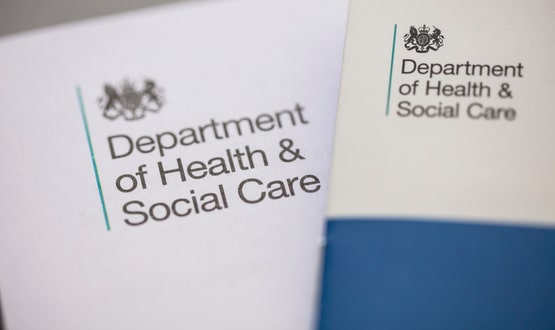GPs get a voice
- 22 February 2005
 Jon Hoeksma
Jon Hoeksma
Dr Gillian Braunold (right), the joint GP clinical lead for the National Programme for IT, says the programme has learned from past mistakes on involving clinicians and stressed the latest arrangements for clinical engagement must be made to work.
In an interview with EHI, the north London GP said of the three previous national initiatives on clinical engagement: "I think it’s a shame that there have been attempts to engage clinicians that have not been successful, but that also throws an awful lot of opportunity our way.
"The programme knows this has to work this time round, they are not going to get another attempt."
Rather than act as a cheerleader for the programme the role of the six new clinical leads is to "hear and listen to what the professions concerns are and clearly articulate them," said Dr Braunold. "Our role is very much not just preaching the word of the national programme, you’ll see that in the way we weren’t put out over Choose and Book."
She said that adopting this approach "means we can be heard at the highest level where doors have been opened to us, but we’re also trusted to bring a credible voice to grass-roots GPs.”
Belief
"The quality of the communications, I think frankly, hasn’t been sufficiently clear" — Dr Gillian Braunold, joint GP clinical lead for NPfIT |
Choose and Book is an area that has suffered from poor communication with clinicians, Dr Braunold acknowledged. In particular she said the programme had failed to get across the message that Choose and Book can be delivered through the telephone bookings management service run by NHS Direct, rather than using the IT solution.
"The GPs haven’t understood that, and the PCTs haven’t understood that, and that’s because the quality of the communications, I think frankly, hasn’t been sufficiently clear."
She added: "I think that people’s concerns will be allayed once people understand you can have an incremental growth in how you use the IT, including a non-technical service as the default."
Dr Braunold said she can understand the fall-off in GPs revealed in the latest Medix-UK survey, but adds: "I think there is a lot we can do to communicate better and that you can disarm a lot of this hostility by better explanation."
Signal and noiseIn her view there are a handful of issues drowning out debate on the wider benefits of the IT-enabled NHS modernisation programme: "Those three issues are: choice, interoperability and EMIS; ethics and confidentiality and information governance, and Choose and Book is a noisy third," Dr Braunold explained.
The GP clinical lead said that the issue of choice remains salient because GPs remain "very tribal with their view of their systems". This strong attachment to systems was she said entirely understandable. "Because there is nothing better to show them yet."
"People think they will be getting a new Rolls Royce whammed on their desk. It’s not going to be like that" — Dr Gillian Braunold |
"You don’t rip and replace what you’ve got already unless the new system is fantastically better."
One of the roughest challenges for the programme says Dr Braunhold is to effectively manage the expectations of GPs and other clinicians. "The thing that scares me most, and the expectation I don’t want to raise, is that people think they will be getting a new Rolls Royce whammed on their desk. It’s not going to be like that."
The reality, she says, is going to be more like mobile phones "where you get a new upgrade every year that’s a bit better each year". Such an approach would enable doctors to be able to play with the new functionality and get used to it in their own time.
EMIS efforts
Addressing the particular concerns of EMIS practices she said that, because EMIS have not had a contract with NPfIT, PCTs have assumed "they must move practices to their alternative GP practice system in their cluster when they are due for upgrade, rather than leaving them in with EMIS."
But the GP clinical lead said this is not the national programme’s intention. "Gordon Hextall [NPfIT chief operating officer] has been writing to PCTs telling them that ‘if it’s an accredited system it should be supported until such time something better is available’, but that’s not now."
Dr Braunold said that efforts are still underway to bring EMIS into the fold. "We’re exploring every option about what the obstacles are and seeing whether there are any solutions we can put in place that will make these issues a lot more comfortable for GPs."
She said that she was confident that these issues can be resolved. "I’d like to think that in six months time those won’t be hot issues anymore, and then we can really engage with clinicians about addressing the benefits they want to see."




